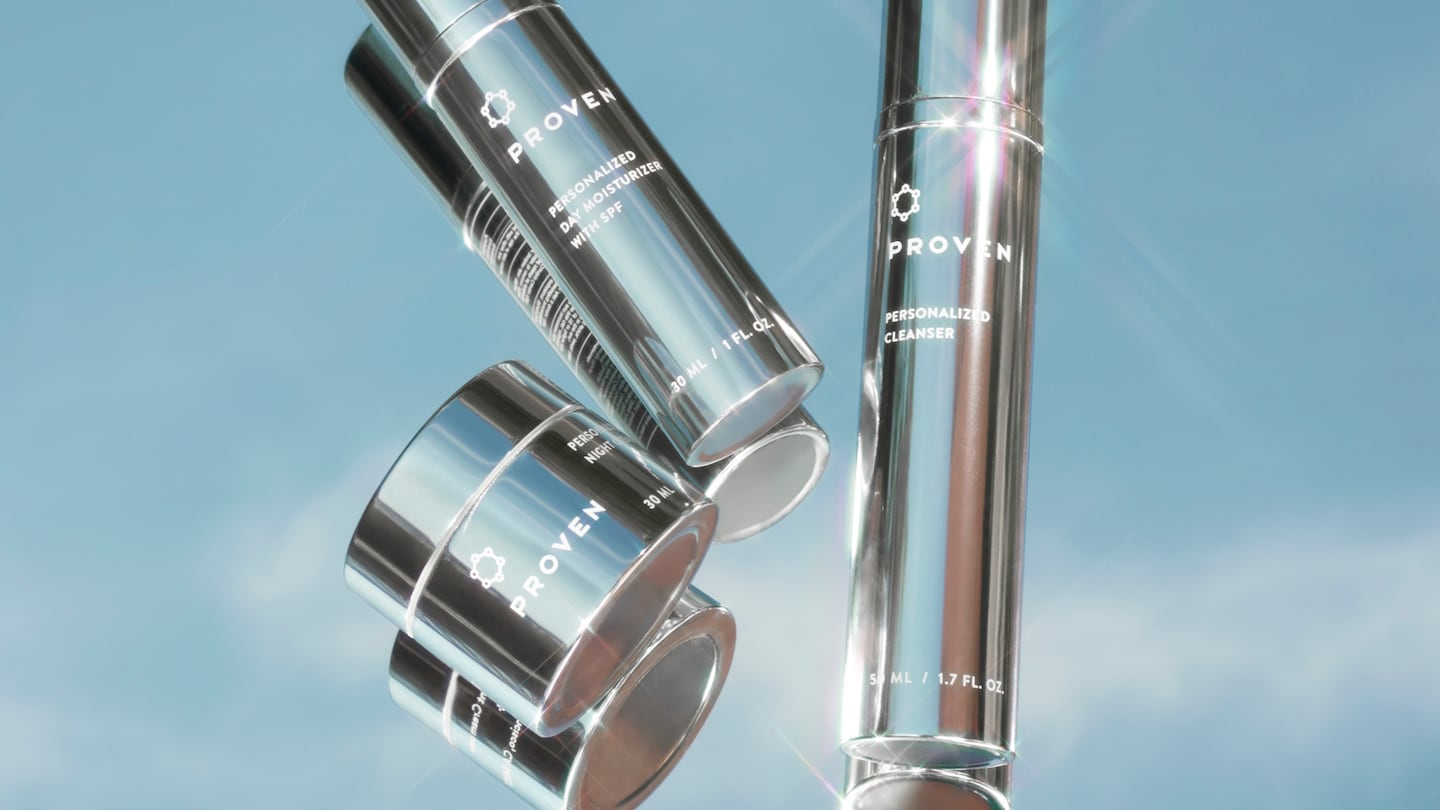
The Business of Fashion
Agenda-setting intelligence, analysis and advice for the global fashion community.

Agenda-setting intelligence, analysis and advice for the global fashion community.

Skin care has never been more personal.
Brands sell products for nearly every skin concern imaginable, from redness to acne to hyperpigmentation. But a new crop of brands are taking things a step further, creating products they say are tailored to an individual customer’s skin.
Personalisation first took off in the hair care market, where brands like Function of Beauty and Prose, both of which launched in 2016, created products in trillions of formulations based on how customers filled out a pre-purchase survey. While the concept wasn’t unknown to skin care — Curology launched its acne-focused line in 2015 — multiple brands have launched personalised products in the last couple years.
Proven, which hit the market in 2020, divides users into 60,000 subgroups based on an online quiz that asks customers about their skin concerns. It offers products including a daytime moisturiser, a night cream and a cleanser. Know, founded in 2021 by singer Madison Beer and actress Vanessa Hudgens, offers a one-minute “diagnostic” quiz that assigns a consumer a cleanser, serum and moisturiser.
ADVERTISEMENT
In an ever-expanding sea of options, these custom-blend beauty brands promise an offering that’s more specific than off-the-shelf moisturiser or do-it-all serum, one that addresses a consumer’s personal skin care concerns, without testing a slew of products to find it.
These brands have plenty of evangelists, though sceptics argue that with so many different skin care options available, a custom formula is unnecessary. Still, they have worked their way into the consumer consciousness, with Google searches for personalised skin care steadily growing over the last four years, from virtually zero as recently as 2018. From 2020 to 2021, Proven’s revenue doubled to $20 million, with $30 million expected this year.
There are speed bumps when it comes to scaling: products built around online quizzes can be difficult to sell in stores, and tech-heavy manufacturing processes are costly. A growing number of brands in the space have diluted power of personalisation as a marketing tool.
“When done well, you literally can come up with hundreds or thousands of potential combinations [of a product],” said Dr. Ranella Hirsch, dermatologist and co-founder of Atolla, a custom-blend skin care brand founded in 2019 that was acquired by Function of Beauty in August. “But there are fundamental challenges.”
With more and more labels branding themselves as “personalised,” there are varying definitions of what that looks like in practice. Some brands take personalisation to a hyper-specific level, with the potential to create billions of different formulas, like Function of Beauty. Others have more of a mix-and-match approach, with hundreds of options.
“The consumer wants something that’s right for them and something that’s more personalised, but my gut is it doesn’t have to be specifically unique,” said Sonya Brown, partner at Norwest Venture Partners, a venture and growth equity firm. “But that is a marketing tactic and I’m sure that there is a market for that.”
Brands are using patents to stand out in an increasingly crowded market.
This week, Proven announced its first patent, which co-founder and chief executive Ming Zhao describes as a broad measure that protects “any skin care personalisation process wherein a group of people or an individual’s personal inputs are placed into an algorithm or an engine of analysis, then a customer receives personalised outputs.” Atolla patented its personalisation processes in 2020, and Curology holds patents for some of its formulas as well.
ADVERTISEMENT
Zhao said that the company has no plans to start litigation with any brand already operating or those who will launch in the space. Instead, Zhao, it’s an endorsement of their process, one that “really signifies that personalisation is now recognised as a true path for skin care and beauty.”
By their nature, personalised beauty brands are designed as direct-to-consumer and digital-first endeavours. The quizzes and assessments that determine the formula a consumer will receive exist online, oftentimes exclusively so. And creating individually personalised products, of course, is a more complex supply chain proposition than manufacturing thousands of the same item and shipping it out to a slew of stores where it’s sold on a shelf.
To sell personalised items in store, brands also must bring their questionnaire process in store, too.
Function of Beauty has proved that it’s possible for these brands to sell in an in-person retail environment — the brand inked a Target partnership in 2020. Though completely customisable products aren’t available in-store, customers are able to pair one of four product “bases” with three of 10 “booster packs” to create their product. Zhao said Proven currently has another patent pending that will enable them to more easily bring personalisation to a retail environment.
Personalisation brands see more upside in competing against conventional rivals than each other.
“The main challenge is proving that it’s worth it for consumers to try a customised [product] because they can’t find something that is sufficient for them from any other brand in the market,” said Andrew Charbin, managing director at investment bank The Sage Group.
However, personalised brands have a distinct advantage over those competitors: data. Each consumer they sell to is filling out a detailed questionnaire about their skin concerns, goals and more.
“If it pans out and scales, it will get to a point where such personalised skin care brands will have a pretty robust repertoire of insights and data on its consumer base, and their skin types, preferences, concerns and challenges,” said Charbin. “The more consumers that sign on and provide their preferences and skin data, the richer and more effective any such brands will be.”
 Opens in new window
Opens in new windowHailey Bieber’s Rhode Skin brand — which launched June 15 to much fanfare — is being sued by the fashion label Rhode, which was founded in 2014 by Purna Khatu and Phoebe Vickers and is carried by retailers such as Net-a-Porter and Bergdorf Goodman.
After a $150 million investment from L Catterton, the custom hair care brand is ramping up hiring and has its sights set on global growth.
The customisable hair care brand wants to become a CPG powerhouse and is investing in new products and key hires to do so

Diana Pearl is News and Features Editor at The Business of Fashion. She is based in New York and drives BoF’s marketing and media coverage.
TikTok has birthed beauty trends with very little staying power. Despite this reality, labels are increasingly using sweet treats like glazed donuts, jelly and gummy bears to sell their products to Gen-Z shoppers.
This month, BoF Careers provides essential sector insights to help beauty professionals decode the industry’s creative landscape.
The skincare-to-smoothie pipeline arrives.
Puig and Space NK are cashing in on their ability to tap the growth of hot new products, while L’Occitane, Olaplex and The Estée Lauder Companies are discovering how quickly the shine can come off even the biggest brands.